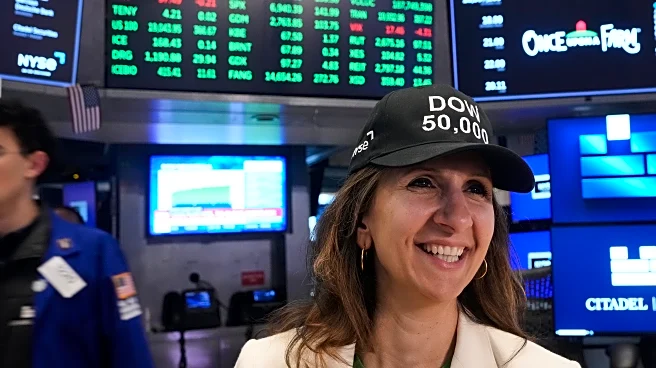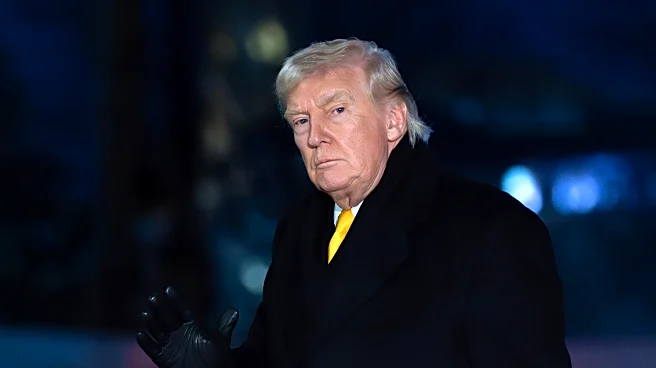What's Happening?
Kia has completed its Hwaseong EVO Plant East and initiated construction on EVO Plant West in South Korea, dedicated to platform beyond vehicle (PBV) production. The company is investing approximately
KRW4 trillion (US$2.8 billion) in the site, which spans 296,882 square meters. The two facilities will collectively produce 250,000 units annually, with EVO Plant East focusing on 100,000 PV5 units and EVO Plant West on 150,000 PV7 and other PBV units, set to begin operations in 2027. The completion ceremony was attended by key figures, including Prime Minister Min-seok Kim and Hyundai Motor Group's Executive Chair Euisun Chung.
Why It's Important?
Kia's investment in PBV production facilities underscores the automotive industry's shift towards electrification and innovative mobility solutions. This development positions Kia as a leader in the emerging PBV market, which is expected to play a crucial role in future transportation systems. By focusing on electrification, autonomous driving, and AI, Kia is aligning with global trends towards sustainable and smart mobility. The investment also reflects South Korea's commitment to advancing its automotive sector and maintaining competitiveness in the global market.
What's Next?
As Kia progresses with its PBV production, the company will likely focus on technological advancements and strategic partnerships to enhance its offerings. The anticipated operations of EVO Plant West in 2027 will further expand Kia's production capabilities, potentially leading to increased market share and influence in the global automotive industry. Stakeholders, including government officials and industry leaders, may collaborate to support infrastructure development and regulatory frameworks that facilitate the growth of PBVs.
Beyond the Headlines
The completion of Kia's PBV production facilities highlights broader implications for the automotive industry, including the integration of AI and autonomous technologies. This shift towards innovative mobility solutions may influence consumer preferences and drive changes in urban planning and transportation policies. Additionally, Kia's focus on electrification aligns with global sustainability goals, contributing to efforts to reduce carbon emissions and promote cleaner energy sources.










